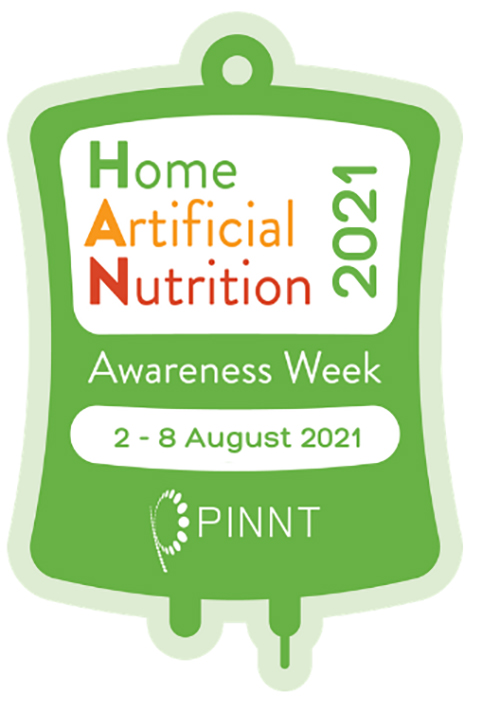BAPEN News
The Hospital Food Review – An update from Phil Shelley

BAPEN recently caught up with Phil Shelley about the Hospital Food Review, where he shared background details and explained what it all means now and for the next 3 years.
What is your role?
After spending nearly 30 years in the NHS at an acute hospital in Somerset, I joined the central team at NHS England & Improvement to support the management of Soft FM responsibilities and, predominantly, to drive the progression of the Food Review recommendations and the completion of the new Food Standards & Strategy documentation. There is a 3-year action plan that will be closely managed and monitored with a reporting structure in place to keep health ministers up to date with development.
How did the Hospital Food Review happen to be?
Following the tragic deaths of 6 patients from listeria in 2019, the Secretary of State called for a root & branch review of hospital food. A number of high-risk foods are served throughout health and social care, so the close scrutiny of procurement, preparation and service of these foods took place to build an expectation of enhancement. The review is seen as a “launch pad” of improvement for food and drink for patients, staff and visitors in healthcare with a distinct focus on safety, quality, nutrition, training and skills profile.
Who has been involved with the Hospital Food Review?
After the necessary conversations and checks with the appropriate levels, I was given the go ahead to chair the review and meet with the Department of Health to form a review panel. Two days before the launch, there were conversations on “celebrity” involvement – I was asked to put forward a couple of names and Prue Leith was one of them; for some time, Prue has had a massive influence on school catering and in her journalistic nature, she has had plenty to say on the challenges of NHS Food, so it seemed a good fit. The review panel was going to be a tight knit group, with several members of the Department of Health and Social Care, NHSI, Defra, PHE, BDA and the Hospital Catering Association being integral. I also invited a matron from Musgrove Park Hospital in Taunton. I wanted to have somebody that clearly understood the day-to-day reality of the challenges that take place at ward level, balancing the service of food and drink with clinical responsibilities.
What does the Hospital Food Review mean for patients/health and social care professionals?
Leading a high number of site visits across the country, with a selection of the panel, enabled the report to include substantial evidence of ‘what does good look like’. Buildings were in a variable state of repair, patient acuity was diverse in each of the sites, service modules were also varied, with complications due to transportation, equipment and skilled workforce. The forming of Integrated Care Systems will support the collaborative approach between acute, community and social care – a balanced diet is very personal to each individual and if we are to promote a healthy nation then the support mechanisms need to be complete.
What is your vision for the Hospital Review, what are the next steps and how can BAPEN get involved?
I have always believed that this review must be different to any other if we are to make the necessary headway to positive change. Being driven by those that are in and supporting the NHS provides credibility and momentum to the actions required. Recommendation number 8 signalled the intent to have an expert panel that reflected the “power of 3” – caterers, nurses and dietitians; they will be leading areas of responsibilities to ensure that we meet the aims of the review. We also have the added benefit of having the substantial contribution of Prue Leith and Dr Rupy Aujla into the expert panel. It is vital that BAPEN alongside other critical experts are linked directly into the expert panel, having their voice heard to shape the way forward. I look forward to that working relationship which is integral to a successful implementation of qualitative nutrition and hydration for all patients, staff and visitors in healthcare.
Is there similar work happening in the other nations?
Although the review is specifically through NHS England, the strength of our healthcare associations that have a 4 nations approach is a great benefit.
Throughout the review and with on-going discussions, it is vital that we link into the similarities of challenges, successes and innovations throughout the UK so as to minimise disappointment but, at the same time, benefit from the shared learning. All of the nations are determined to help create excellence throughout catering services, we are already working with 14 exemplary trusts that will extend to 30 in the coming weeks – this will enable pilots, ‘live’ reporting on improvements and innovations and an immediate ‘touch point’ with the NHS in the constant spotlight.
The continued importance of listening and giving everybody a voice to shape the direction of travel is vital if we are to be successful. This review will be driven through the central team but is reliant on a collective effort if we are to have a desired legacy of healthcare food.
New BIFA Guidelines: Management of central vein thrombosis in patients receiving HPS
BIFA are pleased to publish new guidelines on the ‘Management of central vein thrombosis in patients receiving HPS’. BIFA would welcome comments on the document by 20 August 2021.
To submit comments, please email: secretary@bapen.org.uk.
Click here to download the guidance.
Join the BAPEN leadership team as President Elect
BAPEN is currently seeking candidates for the post of President Elect. This is an honorary post, working alongside the current President, Dr Trevor Smith, with a normal tenure of one year leading on to a three-year term as the BAPEN President.
For further details click here.

Support PINNT’s HAN Week
Home Artificial Nutrition Awareness (HAN) Week (2-8 August, 2021) is a week dedicated to raising awareness about essential, life-saving, nutritional treatments – parenteral nutrition, enteral nutrition and oral supplements – received by people living at home, in the community (not in hospital).
See PINNT’s Core Group update for details on how you can get involved.
UK Malnutrition Awareness Week
SAVE THE DATES: 11–17 October 2021
UK Malnutrition Awareness Week (UKMAW) is run by BAPEN and the Malnutrition Task Force. The week dedicated to raising awareness of malnutrition (and dehydration) among the public, health and social care professionals, policy makers, public sector representatives, local and national government, third sector and voluntary sector organisations.
Further information will follow soon on how you can get involved.
Late breaking abstracts BAPEN Conference
Late breaking abstracts will be accepted up to 5pm on Friday 3rd September 2021, with a non-refundable fee of £20.00 + VAT to be paid upon submission. The fee is applicable whether the abstract is accepted or not. Late breaking abstracts are also published in the online eSPEN Clinical Nutrition.
See the BAPEN Conference page in this issue of In Touch for further details on this great event.

Return to top
